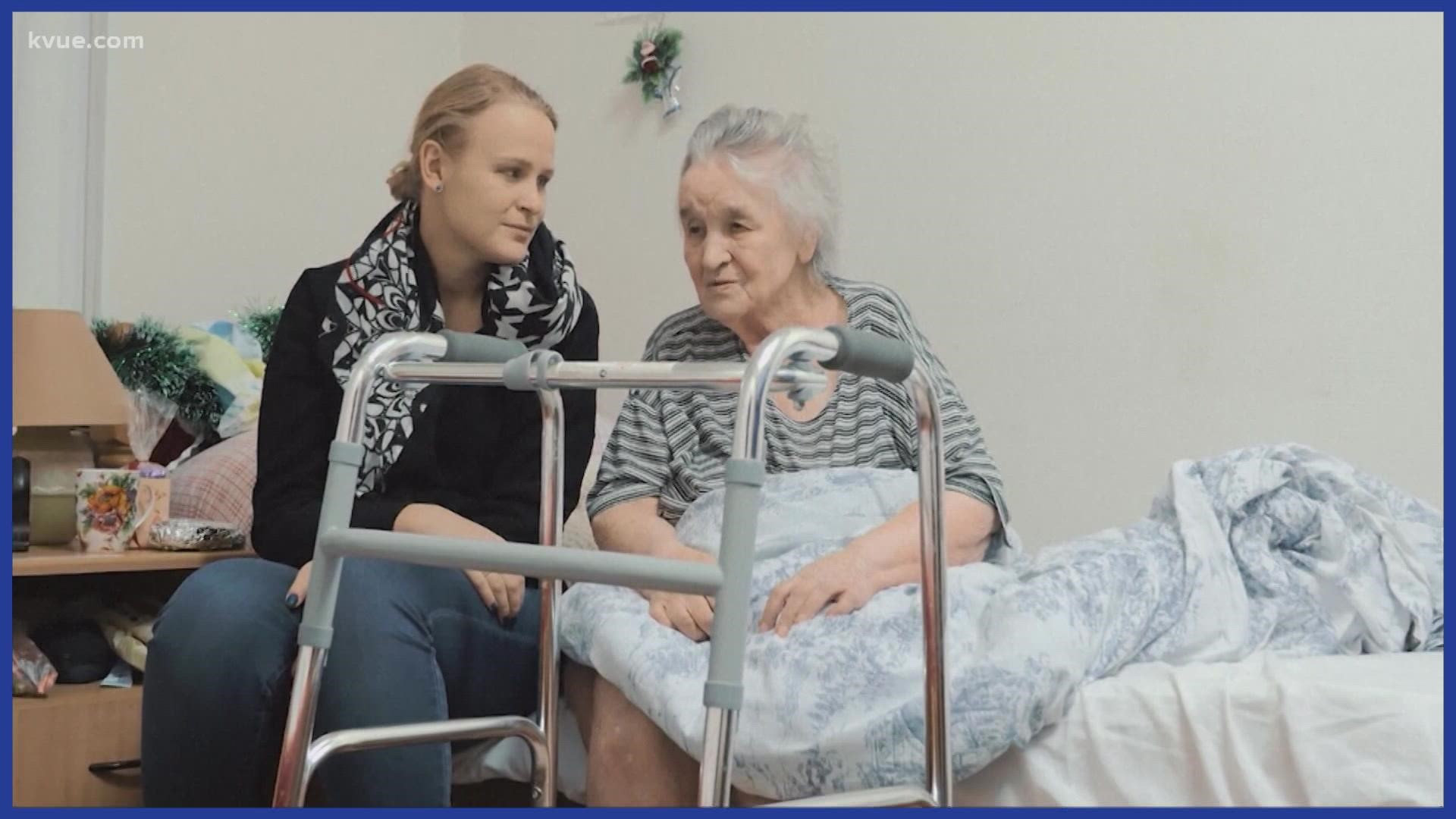AUSTIN, Texas — This June, during Alzheimer’s & Brain Awareness Month, the Alzheimer’s Association is sharing insights from people living with early-stage dementia about what they wish others knew.
Many Americans struggle with what to say and do when someone they know is diagnosed with Alzheimer’s disease or another dementia. Efforts to be supportive can be affected by concerns of saying or doing the wrong thing, and not knowing what to say or do can cause some individuals to distance themselves from their loved ones, further deepening the sadness, stigma and isolation people living with Alzheimer’s and dementia can experience.
The Alzheimer’s Association recently asked people living with early-stage Alzheimer’s and other dementia what they want others to know. Here are six things diagnosed individuals shared with the organization:
● "My Alzheimer’s diagnosis does not define me." Although an Alzheimer’s diagnosis is life-changing, many people living with the disease say their diagnosis does not change who they are. Many say they want to continue doing the activities they enjoy for as long as possible and stay engaged with family and friends.
● "If you want to know how I am doing, just ask me." The sudden change in how others communicate with someone recently diagnosed with Alzheimer’s or another dementia is a frustrating experience for many people living with the disease. Many say it can be upsetting when family and friends only check on them through a spouse or an adult child, and they say avoiding or side-stepping direct communication only makes them feel more isolated and alone.
● "Yes, younger people can have dementia." While the vast majority of Americans affected by Alzheimer’s and other dementia are 65 and older, the disease can affect younger individuals. Those diagnosed with early-onset Alzheimer’s say it is important for others to avoid the common misconception that Alzheimer’s and other dementia only affects older people and to take cognitive concerns seriously at any age.
● "Please don’t debate my diagnosis or tell me I don’t look like I have Alzheimer’s." While family members and friends may be well-intended in attempting to dismiss an Alzheimer’s diagnosis, many people living with the disease say that can be offensive. If someone says they have been diagnosed with dementia, take them at their word.
● "Understand sometimes my words and actions are not me, it’s my disease." As Alzheimer’s disease and other dementia progresses, individuals can experience a wide range of disease-related behaviors, including anxiety, aggression and confusion. Diagnosed individuals say it’s important for others to recognize disease-related symptoms so they are better prepared to support the person and navigate communication and behavioral challenges.
● "An Alzheimer’s diagnosis does not mean my life is over." Earlier detection and diagnosis of Alzheimer’s disease and other dementia is giving diagnosed individuals more time to plan their futures and prioritize doing the things most important to them. Many diagnosed people say they want to continue living active, fulfilling lives for as long as possible.
“The stigma surrounding Alzheimer’s and other dementia is due in large part to a lack of understanding of the disease,” said Andrea Taurins, executive director of the Alzheimer's Association's Capital of Texas Chapter. “These personal insights from people living with early-stage dementia highlight common disease-related stigmas and provide valuable guidance for improving how Central Texas residents can support and engage these individuals.”
During Alzheimer’s & Brain Awareness Month, the Alzheimer’s Association encourages everyone to learn more about disease-related challenges facing those living with Alzheimer’s and other dementia. Educating yourself and others about the disease is one of the best ways to reduce stigma and misperceptions, according to experts.
"It doesn't have to define them. It doesn't have to be what their entire life is about. It is a life-changing diagnosis, but it doesn't have to be the only part of their lives. It doesn't have to completely define them," Taurins said.
The Alzheimer’s Association offers guidance for navigating every stage of the disease. For more information and resources, visit alz.org.
During June, the Alzheimer's Association is also inviting everyone to participate in "The Longest Day" on June 21, which invites participants to "fight the darkness of Alzheimer's through a fundraising activity of their choice."
"The Longest Day is celebrated on The Longest Day of the year to bring awareness that every day in a caregiver's life is their longest day. This is a perfect way to fundraise while doing something you love for a good cause,” said Christine Casebeer, development director of the organization's Capital of Texas Chapter. “Even though The Longest Day is June 21, you have until July 31 to register.”
For more information and to register, visit alz.org/thelongestday.
PEOPLE ARE ALSO READING:

